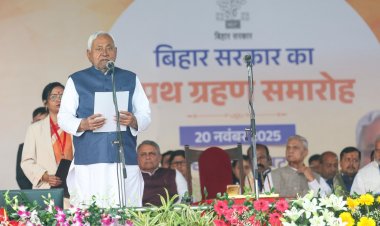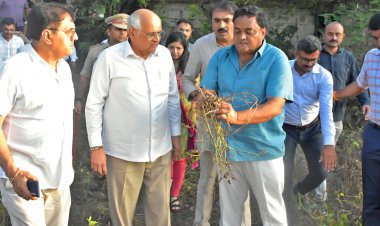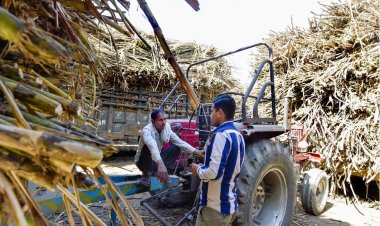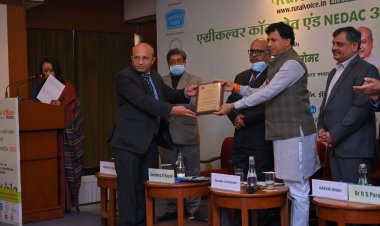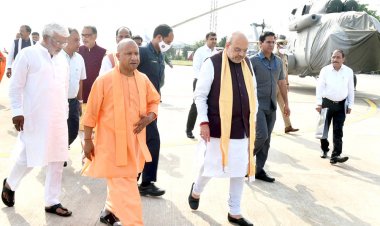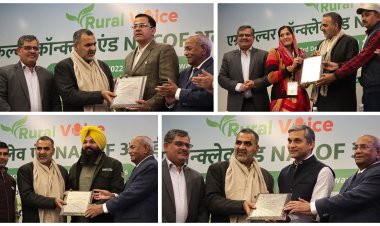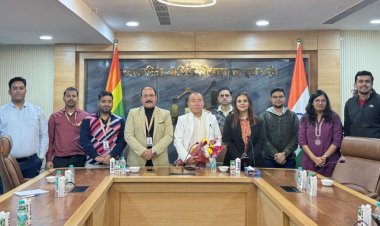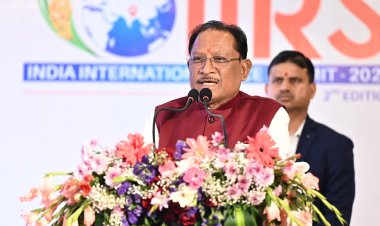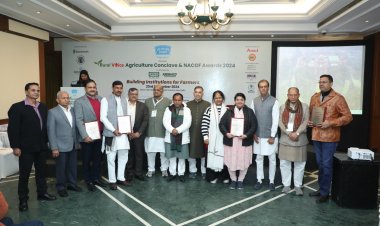Climate change poses major threats to health, economy and livelihoods: YP Singh
Noted horticulturalist Yogendra Pal Singh said that environmental degradation directly impacts human health. Air pollution, water contamination, and climate change contribute to a range of public health problems. Indiscriminate cutting of full-grown trees has added woes to the wounds.
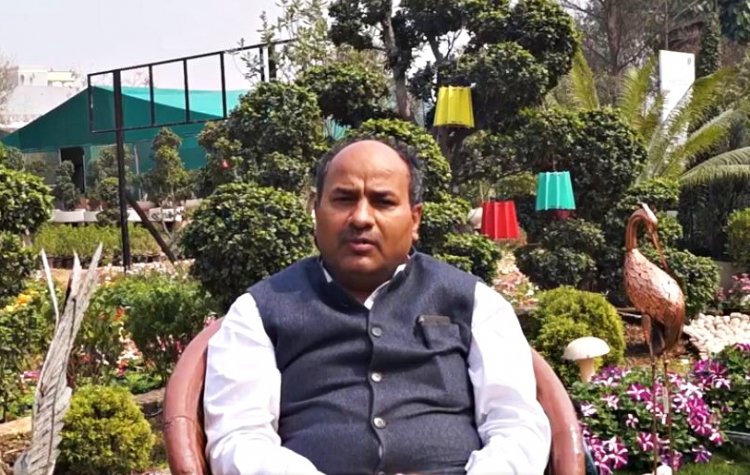
NEW DELHI: Calling upon people to recognize the integral role of the health sector in environmental conservation and climate action, noted horticulturalist Yogendra Pal Singh said that environmental degradation directly impacts human health. Air pollution, water contamination, and climate change contribute to a range of public health problems. Indiscriminate cutting of full-grown trees has added woes to the wounds.
Addressing a programme titled – “Our Land, Our Future” organised at Malviya Smriti Bhawan, New Delhi on the occasion of World Environment Day, Yogendra Pal Singh, popularly known as YP Singh who owns Greenways Nursery – one of the largest nurseries in North India, said, “World Environment Day is not just for those working in the environment sectors, it is a call to action for everyone, including all of us working in sectors like horticulture and public health. The worrying reality is that our Region (South East Asia) records the highest number of deaths from climate change annually amongst all WHO regions. Climate change and biodiversity loss already pose major threats to health, the regional economy and livelihoods across our Region.”
World Environment Day is celebrated annually on June 5th, after it was established at the Stockholm Conference on the Human Environment in 1972. Led by the United Nations Environment Programme, it is the largest global platform for public outreach to raise awareness and taking action on urgent environmental issues – the planet’s most-pressing environmental problems. This year, World Environment Day-2024 focuses on land restoration, halting desertification and building drought resilience under the slogan “Our land. Our future”.
Urging public health community to join the efforts towards land restoration, halting desertification and building drought resilience, Singh further said, “Let us not forget that this is our land, and our future. We must strengthen collaboration between the health and environment sectors to address shared challenges. It is imperative we advocate for policies that prioritize environmental sustainability and public health, and invest in research and innovation to develop sustainable healthcare practices.”
Appealing people to plant more saplings in order to mitigate the problems borne by the climate change, YP Singh reiterated, “We have to prioritize mitigating the impacts of air pollution and hazardous chemicals, building healthcare facilities resilience to climate change, and strengthening the focus on clean and adequate water for drinking, basic sanitation, and hygiene.”
It is pertinent to mention here that the ‘SEA (South East Asia) Regional Plan of Action for the WHO Global Strategy on Health, Environment and Climate Change 2020–2030: Healthy Environments for Healthier Population’ clearly outlines various action points of environmental determinants of health for implementation at regional and country level.



 Join the RuralVoice whatsapp group
Join the RuralVoice whatsapp group


















